SpaceX Starship launch: See the destruction rocket caused on historic flight
Starship launch from Texas resulted in an explosion
SpaceX launches first test flight of world's most powerful rocket before Starship explodes in midair
SpaceX sent its massive Starship up in a monumental test flight before the world's most powerful rocket exploded. (Courtesy: SpaceX)
The launch of the SpaceX Starship rocket in southern Texas earlier this month started a fire on state park land and sent dust over miles of the surrounding area.
The Fish and Wildlife Service in Texas said in a statement that the 3.5-acre blaze ignited south of the launch pad, but did not specify the cause or how long the fire burned.
The agency said that none of the debris that was "hurled thousands of feet away" from the pad was found on Lower Rio Grande Valley National Wildlife Refuge lands – although it was spread out over 385 acres belonging to SpaceX and Boca Chica State Park. That land is leased by the agency and managed as a component of the refuge.
The Fish and Wildlife Service also said a "plume cloud of pulverized concrete" had sent material up to 6.5 miles northwest of the pad site.
SPACEX REVEALS WHY STARSHIP EXPLODED MINUTES INTO LAUNCH
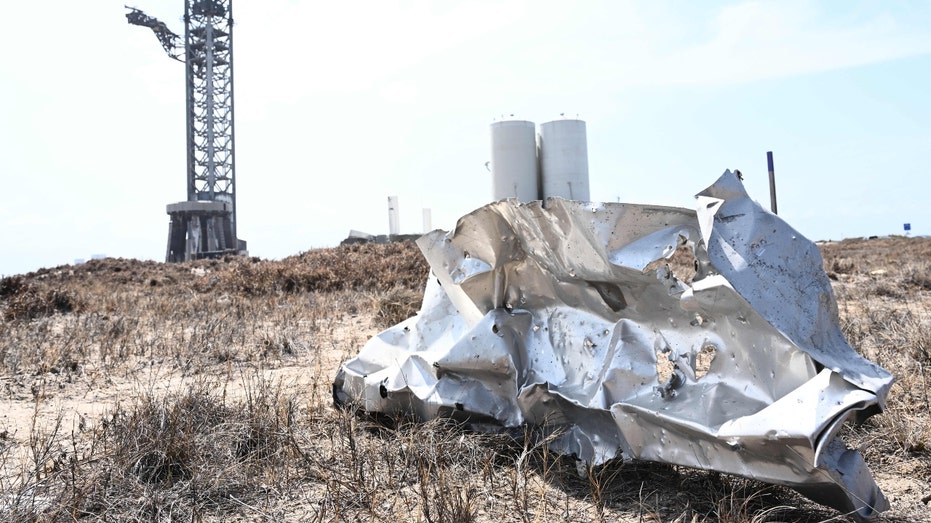
Debris litters the ground on April 22, 2023, after the SpaceX Starship lifted off on April 20 for a flight test from Starbase in Boca Chica, Texas. ((Photo by PATRICK T. FALLON/AFP via Getty Images) / Getty Images)
Residents of Port Isabel had reported dust raining on the town, northwest of the launch site.
"Cameron County Emergency Management Division has confirmed that the dust that fell this morning in Port Isabel was sand and soil from near the SpaceX launch site that was lofted into the air by the force of lift off," the city said in a Facebook post.
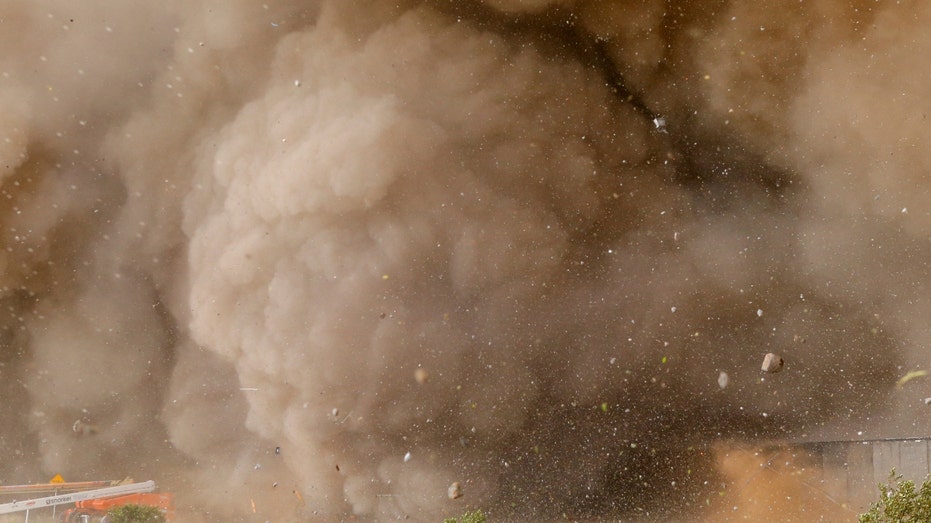
Rocks and other debris fly around remote cameras as SpaceX’s next-generation Starship spacecraft atop the Super Heavy rocket lifts off from the company’s Boca Chica launchpad on an uncrewed test flight before exploding near Brownsville, Texas, April (REUTERS/Joe Skipper / Reuters Photos)
There was no evidence that the launch or its resulting debris harmed area wildlife.
"At this time, no dead birds or wildlife have been found on refuge-owned or managed lands," the Fish and Wildlife Service said, adding that it was in communication with SpaceX and other partner agencies to provide guidance to "minimize further impacts and reduce long-term damages to natural resources."
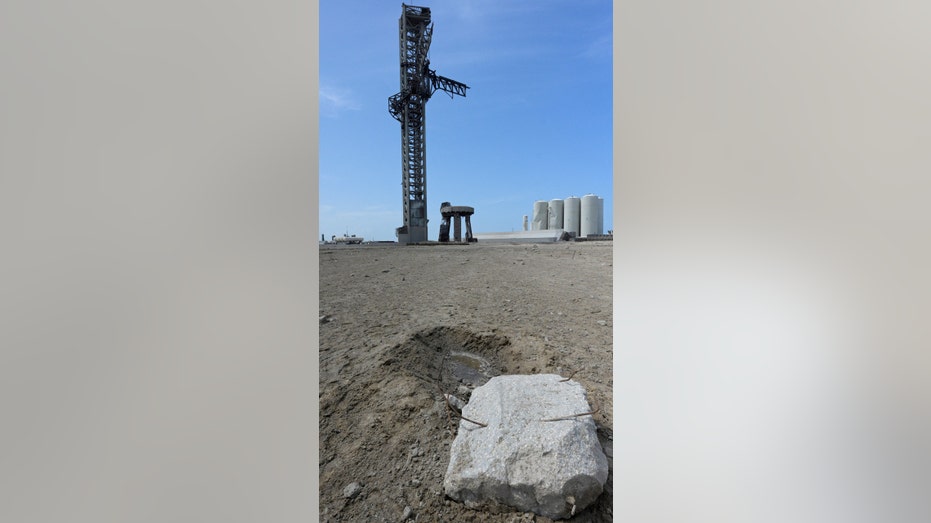
A large piece of concrete is shown near SpaceX's launchpad after their next-generation Starship and super heavy rocket launched, causing damage at the company's Boca Chica facility, near Brownsville, Texas, April 22, 2023. (REUTERS/Steve Nesius / Reuters Photos)
Before the April 20 launch, the American Bird Conservancy had blasted SpaceX for allegedly damaging important coastal bird habitats.
"SpaceX operations continue to damage important coastal bird habitats at Boca Chica in south Texas," Mike Parr, the president of the American Bird Conservancy, said in a statement. "We believe that Cape Canaveral offers a much lower environmental impact option, and is underutilized with less than one launch per month currently despite having six active launch pads and more pads that could be made available."
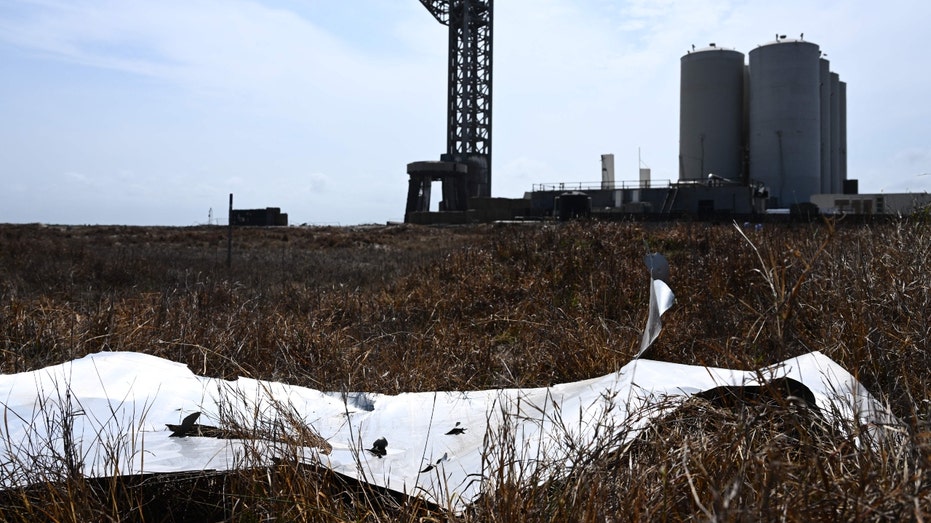
Debris litters the ground on April 22, 2023, after the SpaceX Starship liftedoff on April 20 for a flight test from Starbase in Boca Chica, Texas. ((Photo by PATRICK T. FALLON/AFP via Getty Images) / Getty Images)
GET FOX BUSINESS ON THE GO BY CLICKING HERE
Following the launch, the Federal Aviation Administration grounded the Starships, saying that it would oversee the accident investigation of the test mission, noting that an "anomaly occurred during the ascent and prior to stage separation resulting in a loss of the vehicle."
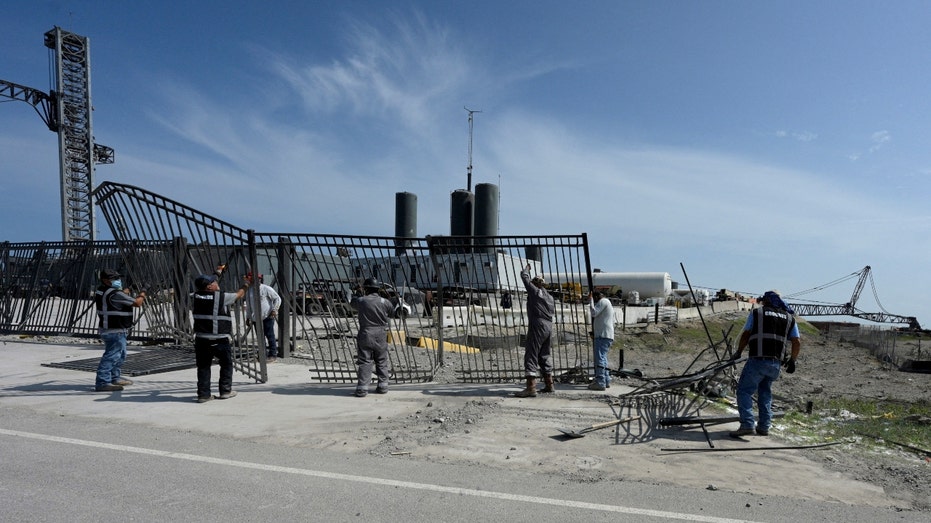
Workers replace fencing on SpaceX's launchpad after their next-generation Starship and super heavy rocket launched, causing damage at the company's Boca Chica facility, near Brownsville, Texas, April 22, 2023. (REUTERS/Steve Nesius / Reuters Photos)
While no injuries or damage to public property had been reported as of April 21, per the administration, a video of debris shooting through the back of a vehicle went viral.
"A return to flight of the Starship/Super Heavy vehicle is based on the FAA determining that any system, process, or procedure related to the mishap does not affect public safety. This is standard practice for all mishap investigations," the FAA added.
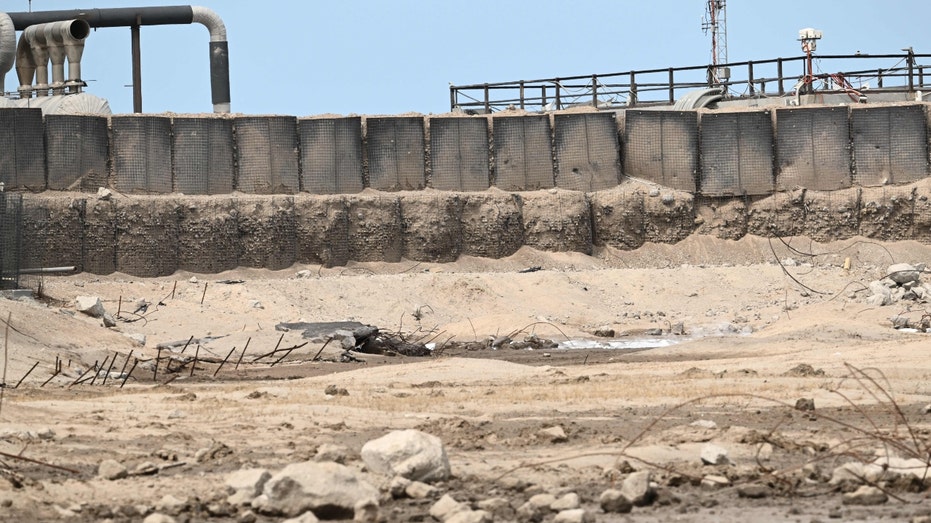
Debris litters the ground on April 22, 2023, after the SpaceX Starship liftedoff on April 20 for a flight test from Starbase in Boca Chica, Texas. ((Photo by PATRICK T. FALLON/AFP via Getty Images) / Getty Images)
Images of the launch site show debris, including metal and chunks of concrete.
The Fish and Wildlife Service is working with the FAA on its site assessment, post-launch event recommendations and Endangered Species Act compliance.
CLICK HERE TO READ MORE ON FOX BUSINESS
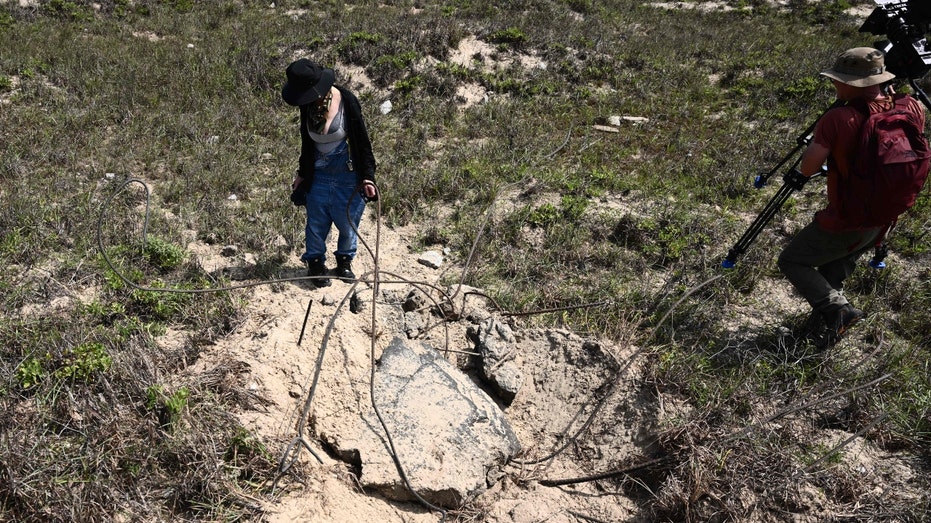
A piece of concrete blown off the launch pad litters the ground on April 22, 2023, after the SpaceX Starship lifted off on April 20 for a flight test from Starbase in Boca Chica, Texas. ((Photo by PATRICK T. FALLON/AFP via Getty Images) / Getty Images)
The largest and most powerful rocket ever built, the nearly 400-foot-tall Starship tumbled out of control and exploded just minutes into its flight, falling into the Gulf of Mexico. The company said the aborted mission was successful: a valuable source of data ahead of future tests.
SpaceX founder Elon Musk said the company plans to install a water-cooling system and steel foundation for the next attempt. He had previously given 50–50 odds that the spacecraft would reach orbit.
NASA has reserved a Starship for its next moon-walking team.
SpaceX did not respond to a request for comment.
The Associated Press contributed to this report.





















